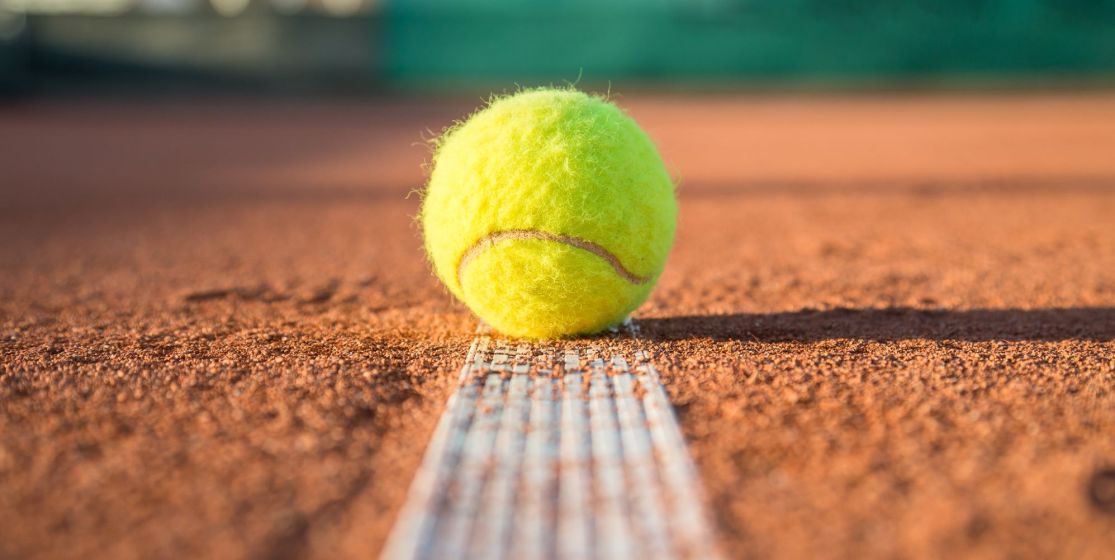Amidst a busy schedule, 172 masters of the yellow ball are looking forward to the Olympic Games in London, between July 28 and August 5. Once shunned by part of the world's elite, the race for the Olympic gold has now become an absolute must.
One of the original sports from the first modern Olympics in Athens in 1896, tennis later encountered a few setbacks. First the men, then the mixed in the early 20th century before being evicted from the 1928 Olympics in Amsterdam, the little yellow ball was slow to make a re-appearance. A demonstration event in Mexico City in 1968 and then again in... 1984 in Los Angeles, it only properly re-entered the fold of the IOC at the following Olympics, under the friendly pressure of the International Tennis Federation. Since then, the Olympics are like an enchanting interlude in the routine of the male and female players of the tour. Like a fifth Grand Slam every four years. Since 1988, the Olympic gold is also used to benchmark the careers of the players, just like the BNP Paribas Davis Cup, the BNP Paribas Fed Cup and the Masters. Agassi took them all. Steffi Graf won the Golden Grand Slam in winning all four Majors plus the Seoul Olympics the same year. Nadal is missing the Masters; Federer still misses the Olympic gold in singles and the BNP Paribas Davis Cup. In short, the whole tour is looking forward to the Olympics once again. And to go back to Wimbledon three weeks after the first visit.
“Will the grass have grown back?” said a worried John Isner in the spring, who will be playing in the singles, the doubles and the mixed doubles, the newcomer this year. “I dream to play on Centre Court in red (the colour of Russia, Ed.)” said a delighted Maria Sharapova. “The Olympics are the goal I had set myself when I came back to the tour three years ago,” promises Kim Clijsters. “In 2004, I was injured. In 2008, I just had my daughter. 2012 is my last shot. The goal is to be fit and not to go there just for the experience.” The Olympics are definitely something special, even for the aristocracy of an ultra-professional and public sport. Roger Federer has been twice, in 2004 and 2008, the Swiss flag-bearer - this time, he declined - and it's also where he met his future wife, Mirka, in 2000 in Sydney. Novak Djokovic loved to chat with athletes from all over the world in the Olympic Village and won the bronze medal in Beijing four years ago. But this time, to hunt the Golden Grail, he will stay away from any such promiscuity. Rafael Nadal, the title holder will be, meanwhile, the flag-bearer for the Spanish delegation, as will Agnieszka Radwanska be for Poland and Maria Sharapova for Russia. Although it is not yet a major sport in the Olympics like athletics or swimming, tennis is gradually becoming one of the emerging disciplines.
Tommy Haas dismissed by his Federation
Therefore, Wimbledon welcomes for a second time the Olympic event, one hundred and four years after London 1908 and to reach it, a number of conditions had to be met. To have played in a Fed Cup or Davis Cup game for two consecutive years (which explains the absence of Marion Bartoli, who didn't want to participate in the ladies competition without her father and coach, Editor's note), to be ranked among the top fifty-six in the world in singles and to be in the top four of their country. A condition that penalized the Spanish (Granollers, the world No. 24, will only play the doubles with Nadal, Editor's note), and even the French (Benneteau, 32nd in the world, will also be limited to playing doubles with Gasquet, Editor's note). Each Olympic Committee can also only bring six players, four for the singles plus two for the doubles. The two singles events only count sixty-four contenders, unlike Grand Slams and their one hundred and twenty-eight competitors. There will be six rounds in total and therefore everything is played in three sets, except the men's final, a best of five sets match. A players last chance: receiving a wild card granted by the International Federation (ITF). This is the case for Lleyton Hewitt (winner in London exactly ten years ago , Editor's note) but also for Bellucci (Brazil), Devvarman (India), Pospisil (Canada), Ungur (Romania), Kavcic (Slovenia), Jaziri (Tunisia ) and Ukrainian Stakhovsky. And for Alize Cornet, in both singles and doubles...
There are some surprising choices also. For various reasons - injuries, late return , arbitrary decision or policy of their federation, if not mysterious reason - players like Mardy Fish (13th) , Soderling (longstanding injury Editor's note), Florian Mayer (quarter-finalist at Wimbledon Editor's note), Ernests Gulbis, Brian Baker and Sam Querrey, Tommy Haas (back from hell at the 49th place, conqueror of Federer on grass in Halle in June, the 2000 Olympic silver medallist was dismissed by his Federation, Editor's note) and Dolgopolov (19th) won't see London in late July. In the ladies, except Marion Bartoli dismissed for the reasons already stated, almost all of the best will be there. Registrations were closed on July 9th and there could be some surprises, such as Gael Monfils missing from action since Roland Garros. Besides the ATP and WTA points awarded, everyone is well aware of what the Olympics mean. Andy Murray, the local lad said: "Since my elimination in Beijing (against the Taiwanese Lu Yen-Hsun in the first round, Editor's note), I think of the Olympics in London, at Wimbledon, in front of my fans. It’s really special." Since his defeat in the final at Wimbledon, it’s even truer...
By Rico Rizzitelli






